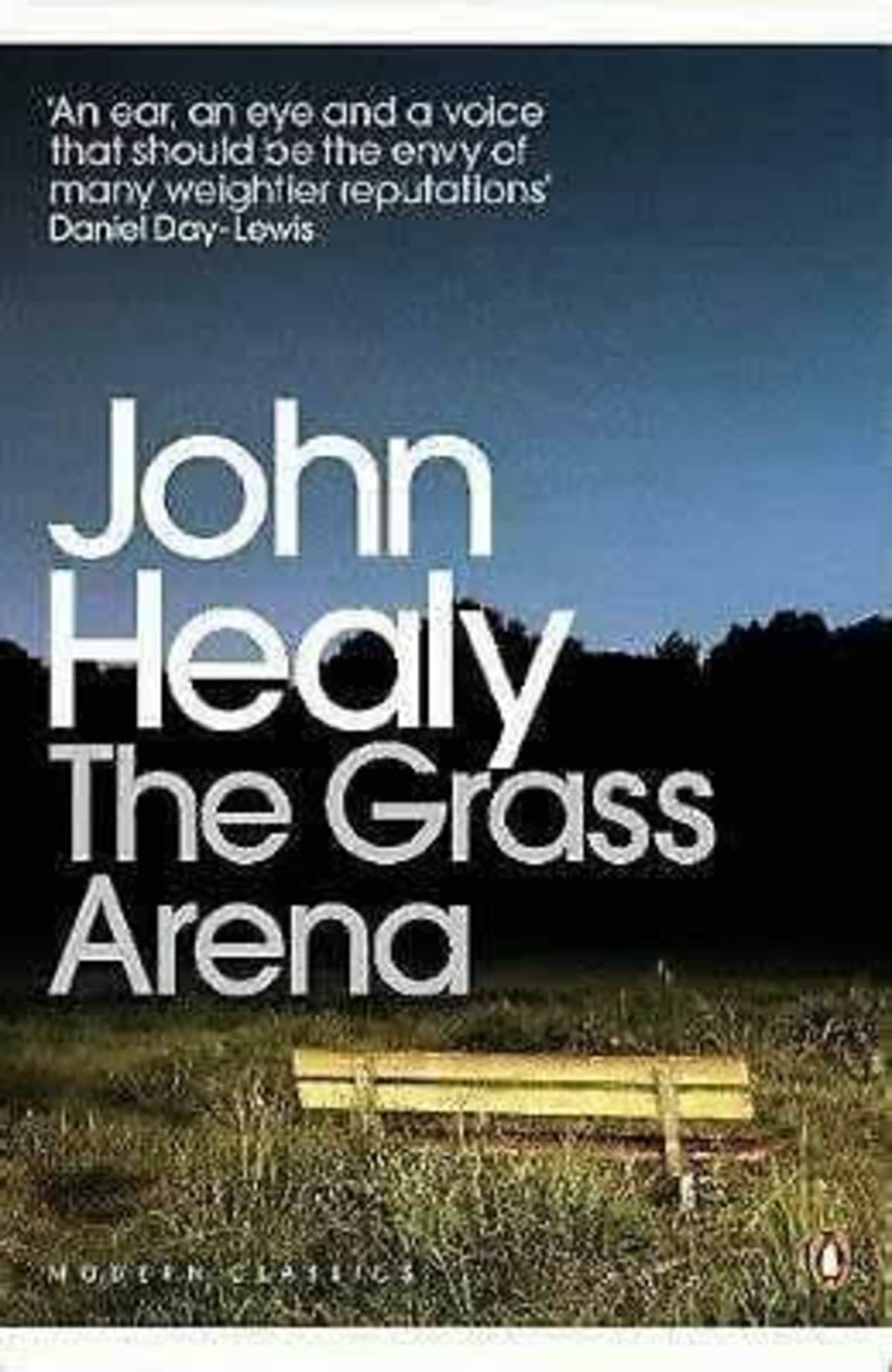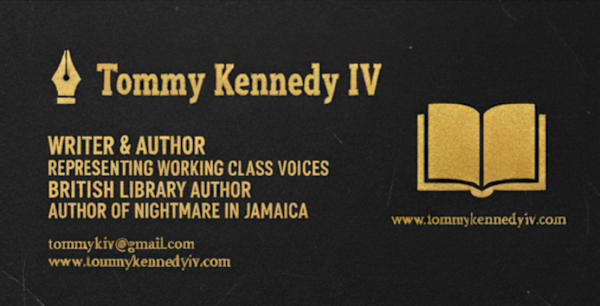

True stories. Real lives. No filters.
FEATURED STORY: THE GRASS ARENA FILES
The life, the fall, and the fightback of John Healy — the boxer turned street drinker who found salvation through chess and the written word. A two-part feature exploring grit, genius, and redemption on the streets of London.
The Grass Arena - John Healy and the Art of Fighting Back
THE GRASS ARENA FILES: JOHN HEALY AND THE ART OF FIGHTING BACK
By Tommy Kennedy IV
PART ONE: SAVED BY THE BOOK
Based on an article by Erwin James, The Guardian (5 August 2008)
Some stories don’t just pass the time — they crawl under your skin, shake your bones, and leave you seeing life through different eyes.
The Grass Arena by John Healy is one of them.
It’s not a cosy read. It’s brutal, honest, and beautiful in that unfiltered, lived way that makes you stop and think. This is the true story of a man who fell to the bottom, hard — and somehow climbed his way back with nothing but a chessboard and sheer will.
Healy was born in London in 1943, the son of poor Irish immigrants. His father was violent, home was cold, and the world outside wasn’t any kinder. He drank early, boxed for relief, and by sixteen he looked like he might make it. His trainer, George Francis, called him “an acclaimed stylist with concussive power in both hands.”
He could’ve been a contender. But the bottle had other ideas. By his twenties, Healy was sleeping rough — drinking, stealing, fighting for scraps of warmth in what he called “The Grass Arena” — a patch of London parkland where drunks, thieves, and the forgotten gathered to survive.
Then came Pentonville Prison.
That’s where Healy met Harry the Fox, an old-school crook who taught him chess.
Healy became obsessed. “Chess is a jealous lover,” he later wrote. “Will tolerate no other.”
The drink vanished overnight. The game took over. And that obsession became his redemption.
When he walked free, Healy didn’t go back to the streets. He played in tournaments, faced grandmasters, and wrote his story — raw and unflinching — in The Grass Arena, published in 1988.
Erwin James — the journalist who wrote about Healy for The Guardian — was himself serving a life sentence when a probation officer handed him the book.
“It is possible to fix a broken life,” she wrote in a note.
For James, the impact was instant. He said the first line hooked him — “My father didn’t look like he would harm anyone.”
He read it in one go. Every page a hit of truth. Every line a mirror for those who’d lost their way.
The Grass Arena won the J. R. Ackerley Prize for Autobiography, became a film starring Mark Rylance, and stood tall as one of Britain’s great stories of survival.
But the glory didn’t last. Healy fell out with his publisher, and the book was pulled. He vanished from the scene, caring for his mother in Islington until she died. He lived off benefits in a small flat, still writing, still sober.
He started work on a novel called The Metal Mountain, about Irish immigrants in 1950s England. He wrote plays, short stories, even a screenplay called The Conqueror — a story of a knight who steals a woman from a convent. Erwin James called it “a stunning piece of writing of almost Shakespearean quality.”
Healy never stopped believing he’d find his way back.
In 2008, Penguin reissued The Grass Arena as a Modern Classic.
At the Cúirt Literary Festival in Galway, Healy stepped on stage again — older now, thinner, still sharp as glass.
When he finished reading, the crowd stood.
“Go on, John!” someone shouted.
“Good on yer, John!”
The queue for his signing stretched across the room.
And for the first time in decades, Healy lifted his head and smiled.
Healy’s story isn’t about miracles. It’s about graft, guts, and the hard truth that some people fight their way back from hell without applause.
The Grass Arena proves one thing — you can be broken, lost, written off — and still find a way to stand up straight again.
Because words, when they’re honest, can save a man.
Original Source:
Erwin James, “Saved by the Book,” The Guardian, 5 August 2008.
Read the original article here →
PART TWO: WHY JOHN HEALY STILL MATTERS TO ME
By Tommy Kennedy IV
Some writers polish their pain until it glitters.
John Healy never did. He wrote it raw — no gloss, no mercy, no pity. That’s what first got me.
When I read The Grass Arena, it didn’t feel like a book. It felt like a confession shouted across a cold London night. You could smell the rain, the beer, the hopelessness, and still — buried underneath — that tiny flicker of fight. That’s what I recognised.
Working-class writers like Healy, they don’t get handed redemption; they earn it. Word by word. Brick by brick.
What struck me most wasn’t that he quit drinking or learned chess. It was the discipline behind it. That fierce focus that said, “I’m not done yet.”
I know that feeling — when the world tells you you’ve had your shot, and you write anyway. You build stories out of nothing. You chase meaning with dirty hands and tired eyes.
Healy didn’t wait for permission to be a writer. He just told the truth.
And the truth, when it’s that bare, doesn’t need polishing.
There’s something important about men like Healy.
They remind us that literature doesn’t belong to the privileged — it belongs to anyone brave enough to bleed on the page.
He wrote about park benches and prison cells, about hunger and cold and madness. And through that honesty, he found freedom — the kind you can’t fake or buy.
That’s why his work still punches hard today. It’s a warning and a promise.
A warning that life can chew you up.
A promise that you can still spit the taste out and start again.
For every Healy, there’s a hundred voices we’ll never hear — men and women who could’ve written their way out but didn’t get the chance. That’s why I keep writing. It’s why I tell stories about working-class lives, about the fight behind the face, the humour inside the hurt.
Because somewhere out there, there’s another lad reading The Grass Arena, thinking, If he did it, maybe I can too.
And that’s all you need sometimes — one story that refuses to stay silent.
Because Healy proved that art can come from anywhere.
Because his voice was proof that the system doesn’t get the final say.
Because even after the lights went out, he kept writing in the dark.
That’s why he matters — and why he always will.
AUTHOR’S NOTE: WHY I WROTE THIS STORY
When I first came across John Healy, I saw a bit of every working-class lad I’ve ever known — the anger, the fire, the quiet brilliance that never got its chance. Healy fought his demons the only way he could — with words.
That’s why his story belongs here.
Because my writing’s built from the same bricks — from grit, loss, small flats, broken dreams, and the hope that stories can lift us out of it.
Healy showed that talent doesn’t come from privilege — it comes from pain, from experience, from the instinct to survive.
So this one’s for the storytellers who work with their hands, the dreamers who never gave up, and the fighters who found their voice when the world tried to silence them.
That’s the arena I write from.
And it’s the only one that matters.
#JohnHealy #TheGrassArena #WorkingClassWriters #WritingFromTheStreets #RedemptionStories #BritishLiterature #WritersWhoFightBack #TommyKennedyIV #AuthenticVoices #NoirWriting #LondonWriters #TrueGrit #StorytellingThatMatters #WritingLife

